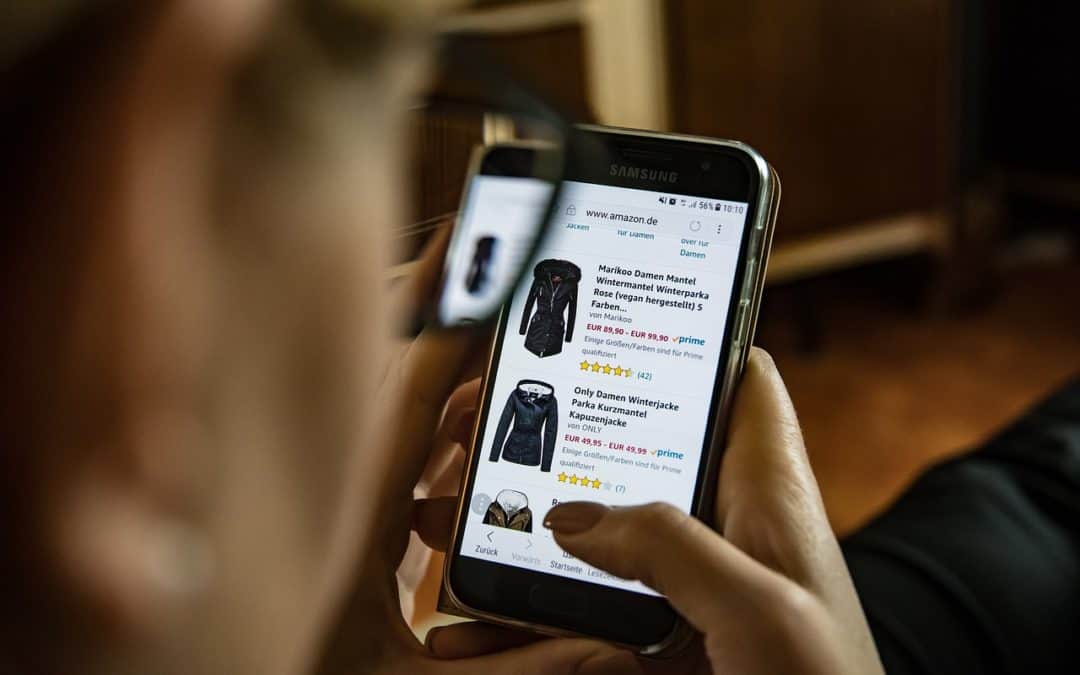The Commission guidance regarding consumer protection directives has been updated.
The European Commission’s long-awaited interpretation of the Directive concerning unfair business-to-consumer commercial practices (UCP Directive) was finally published in the form of a Notice on 17 December 2021. Quite diligently, the Commission also published notices on the interpretation of other consumer protection Directives (e.g. on price indication and consumer rights) on the same day. The publication of these documents was all the more timely because, as we previously reported, national consumer protection regulations will change significantly on 28 May 2022 due to the transposition of the Omnibus Directive. One of the objectives of the Notices is to provide assistance to businesses, consumers and legal professionals in the interpretation of the regulations and the legal assessment of commercial practices pursued in a digital environment.
In this summary, Boglárka Priskin, Anna Pintér and Márton Kocsis, CERHA HEMPEL Dezső & Partners’ consumer protection experts, discuss certain elements of the Notice on the UCP Directive, while the rest of the Notices will be addressed in later summaries.
Why is the new Notice important?
“What we see every day working for our clients is that there are still major differences in the interpretation of certain provisions of the regulations that have transposed the UCP Directive into national law and in the severity of the punitive sanctions applied under such regulations, even though the Directive is based on the principle of maximum harmonisation. We hope that the updated Notice, which includes the latest case law of the ECJ up to the date of the Notice and also describes a few national cases, will prove to be a valuable tool that will enable national regulatory authorities to finally interpret the Directive (and the national regulations transposing it) in a uniform manner”, says Márton Kocsis, the head of CERHA HEMPEL’s competition law practice group.
The Notice has essentially retained the structure of the 2016 update to discuss the relationship of the UCP Directive with other Community legislation (such as the GDPR, or Articles 101 and 102 of the TFEU, which deal with certain fundamental principles of market competition), while it follows the structure of the UCP Directive (definitions, general clause, misleading and aggressive practices, black list, sector-specific rules) to describe the interpretation of various provisions and the latest case law. In the section where the Notice discusses sector-specific rules, the Commission expresses its views on online commercial practices that were not addressed in the 2016 version (such as the publication of search results, influencer marketing, moderation of user reviews, the use of “dark patterns”, etc.).
Transactional decisions, dark patterns and consumer shaming: stricter rules
“When it comes to assessing whether a commercial practice is unfair, consumer protection authorities examine whether it is capable of distorting a consumer’s transactional decision. Authorities have applied a very broad understanding of the meaning of transactional decision, and such approach appears to have been confirmed by the Notice. The Commission argues in the Notice (which is not a piece of legislation and is therefore not binding on the authorities and courts of the Member States) that clicking on an online link or advertisement, the continued browsing of website or scrolling through a feed can also qualify as a transactional decision. Although the document provides a detailed description of certain online commercial practices that are subject to the UCP Directive, it fails to recognise that consumers have a greater awareness in connection with ads that target the average online consumer, because they have learned various techniques to protect themselves, such as checking price comparison sites, and they know that they can leave a site they don’t like with a single click of a button. Therefore, we believe that such a broad interpretation of transactional decisions ignores changing attitudes and behaviours”, notes Boglárka Priskin, a member CERHA HEMPEL’s consumer protection group.
On the other hand, the Notice states in connection with personalised advertising that the digital environment offers greater opportunities for companies to use data they have collected or otherwise acquired to develop personalised sales techniques that can easily manipulate a consumer based on their particular life situation. Consequently, the use of data that can allow conclusions to be drawn in connection with the vulnerability of a particular group of consumers for sales promotion purposes can qualify as an aggressive commercial practice.
The term “dark patterns” is applied to methods that can be used to manipulate consumers, such as the creation of a user interface where users are induced by the dark pattern to make decisions that they would not have otherwise made. For example, dark patterns include practices where a website is designed in such a way that the “buy” button is very conspicuously placed while the button to cancel the transaction is much less so, or where the position of ‘yes’ and ‘no’ buttons are strategically switched midway through the buying process to increase the chance that consumers will click as the website operator wants them to. The Notice also mentions “confirmshaming”, a practice whereby traders attempt to shame consumers if they do not make a choice that the trader wanted. The Notice states that if such practices are capable of distorting transactional decisions due the characteristics of the given pattern (e.g. unwanted solicitation, misleading or aggressive practice), they can qualify as unfair commercial practices. The Notice points out that pre-ticked boxes regarding the purchase of additional services may be in violation of not only data protection rules but the UCP Directive as well.
The Commission has taken notice of influencers and gamers, and prohibits lock-ins
“The issue of ‘influencer marketing’ is addressed by the Commission for the first time, and the Notice makes it clear that the content produced by influencers to promote products and services can in many cases involve misleading practices. The Commission notes that it is not necessary that the influencer should receive monetary payment in order for the relevant content to have a commercial element; any form of consideration (including unsolicited gifts) is sufficient. In order to avoid a breach of the regulations, the commercial element/nature of influencer content must be disclosed clearly and appropriately in the light of its context, placement, timing, duration, language, target audience, etc., and that such disclosure must be made in connection with all content that includes a commercial element. In what could be termed as a somewhat surprising development and perhaps as a too strict interpretation, the Commission argues that influencer marketing can also qualify as an aggressive practice in some cases, on the grounds that the relationship between an influencer and their audience is one based on trust and personal connection. The Commission also notes (and correctly, we believe) that this is particularly relevant in the case of vulnerable consumers, such as children. Advertising that targets children is subject to even more stringent rules” points out Anna Pintér, an Associate at CERHA HEMPEL and a member of the firm’s consumer protection team.
The Commission also applies a strict approach to video, mobile and online games. The Commission argues that the publishers of games can be guilty of misleading or aggressive commercial practices if the existence of in-game promotions and advertisements are not made sufficiently clear for payers and are not distinguishable from gameplay. For example, this requirement also dictates that the prices of virtual products must also be displayed in a real currency, and that a purchase must not be made without the player’s express consent even if the payment method is saved as a default setting. The requirement to provide appropriate information also means that when a publisher offers access to a game that is still in development, it must clearly state what benefits consumers can expect from the development process. Also, a game can only be advertised lawfully as free if it offers a reasonable and appropriate gaming experience even without in-game purchases. The practice of urging players to execute micro-transactions (make low-value purchases) at critical points in a game can also qualify as an aggressive practice. If a game involves elements of gambling (e.g. prize wheels, loot boxes, etc.), their presence should be disclosed clearly and in a manner that it is clearly distinguishable from gameplay, including an explanation of the probabilities of receiving a (random) item.
The Notice devotes a separate section to the phenomenon known as “consumer lock-in”, i.e. the situation where consumers experience difficulties in changing providers and where limitations are placed on the opportunity for such changes due to the limited interoperability of digital devices. The Commission points out that a passage in the UCP Directive on one of the factors that should be taken into account in the determination of whether a commercial practice qualifies as aggressive can also be applied to such situations. Under the relevant provision, a trader’s imposition of any onerous or disproportionate (non-contractual) barriers when a consumer wishes to exercise rights to terminate a contract or to switch to another product or another trader may qualify as an aggressive practice. However, such an infringement and others similar to it can be avoided by providing advance information to consumers about the compatibility of digital devices and products with other devices. Although this is the first time that consumer lock-in as a phenomenon has been included in the Notice, the Commission previously addressed the issue in connection with the Digital Markets Act and the Digital Content Directive.
Application in Hungary
“It is important to note that the approach used by the Hungarian Competition Authority, the competent national regulatory agency, is forward-looking in the sense that they have examined practices that will be blacklisted after 28 May 2022 in the light of the current regulations. Such practices include automated ticket sales examined in the recent Viagogo case or the moderation of consumer opinions examined in the Hermina Bau case. The evaluation of whether these and other practices in the digital sector comply with consumer protection rules will probably be easier now with the addition of new chapters to the Notice, but this does not mean that businesses will find it easier to comply with the stricter requirements. However, if our hopes are realised and the UCP Directive is indeed interpreted consistently across the EU as intended by the Commission, awareness of the Notice will help Hungarian businesses as well as companies that operate in several Member States achieve voluntary compliance, which can also result in the avoidance of increasing fines”, adds Márton Kocsis in conclusion.
Authors: Boglárka Priskin, Anna Pintér and Márton Kocsis, CERHA HEMPEL Dezső & Partners’ consumer protection experts





